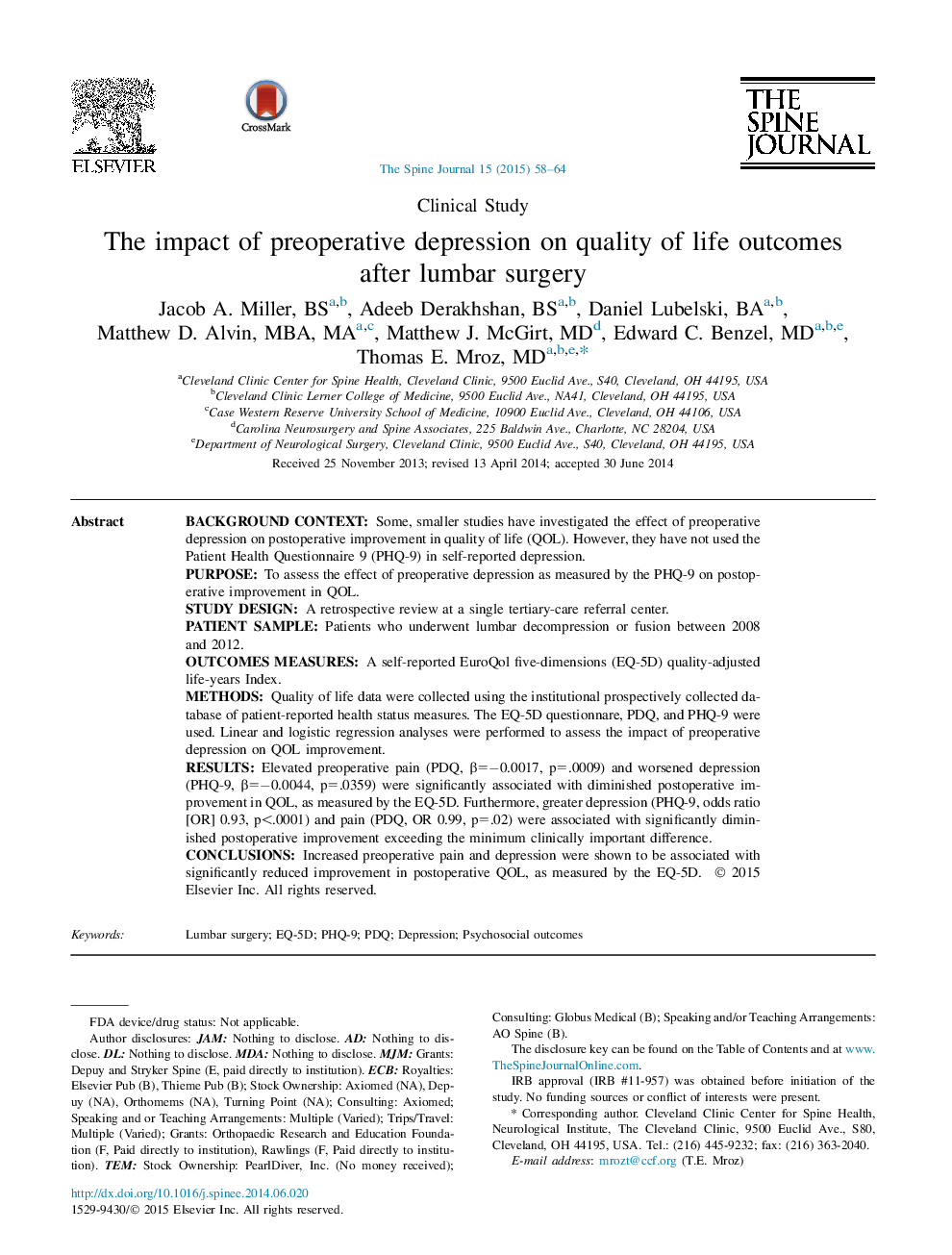| Article ID | Journal | Published Year | Pages | File Type |
|---|---|---|---|---|
| 4096499 | The Spine Journal | 2015 | 7 Pages |
Background contextSome, smaller studies have investigated the effect of preoperative depression on postoperative improvement in quality of life (QOL). However, they have not used the Patient Health Questionnaire 9 (PHQ-9) in self-reported depression.PurposeTo assess the effect of preoperative depression as measured by the PHQ-9 on postoperative improvement in QOL.Study designA retrospective review at a single tertiary-care referral center.Patient samplePatients who underwent lumbar decompression or fusion between 2008 and 2012.Outcomes measuresA self-reported EuroQol five-dimensions (EQ-5D) quality-adjusted life-years Index.MethodsQuality of life data were collected using the institutional prospectively collected database of patient-reported health status measures. The EQ-5D questionnare, PDQ, and PHQ-9 were used. Linear and logistic regression analyses were performed to assess the impact of preoperative depression on QOL improvement.ResultsElevated preoperative pain (PDQ, β=−0.0017, p=.0009) and worsened depression (PHQ-9, β=−0.0044, p=.0359) were significantly associated with diminished postoperative improvement in QOL, as measured by the EQ-5D. Furthermore, greater depression (PHQ-9, odds ratio [OR] 0.93, p<.0001) and pain (PDQ, OR 0.99, p=.02) were associated with significantly diminished postoperative improvement exceeding the minimum clinically important difference.ConclusionsIncreased preoperative pain and depression were shown to be associated with significantly reduced improvement in postoperative QOL, as measured by the EQ-5D.
